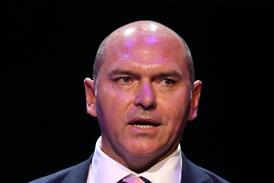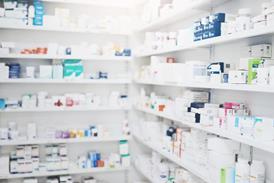GP practices could earn at least £8bn from selling the “goodwill” tied up in their practices, figures from the DH suggest.
The figure comes as private companies targeting the primary care sector are lobbying the government to allow practices to sell the goodwill in their businesses - essentially their patient lists - as a way to open up the GP practice market.
If you could buy goodwill, the private sector could buy [a practice] as an existing concern
Practices are barred from selling their goodwill which means they have little incentive to sell their practices. A source at one private primary care provider told HSJ a relaxation in the rules would be consistent with the white paper’s aim to increase choice and competition.
The source said private companies were currently only able to buy GP practice buildings. If they were able to purchase the goodwill too, it would make investing in primary care more attractive.
The source said changing the rules would mean “injecting choice and competition and allow much freer movement and let other players in”.
The £8bn figure was given to HSJ in response to a Freedom of Information request. The DH based the calculation on the £66m the government made available to GP practices in the period after 1948 as “compensation for the loss of the right to sell the goodwill of their practices.”
The DH said the £66m figure was calculated by multiplying the core NHS investment in general practice by 1.5847. It said the same methodology would take the £5.3bn spent on core GP services in 2009-10 to produce a “current value of that goodwill [of] around £8bn”.
Primary Care Trust Network director David Stout said private primary care companies were interested in a relaxation of the rules around selling goodwill as that was a “means of getting into the business”.
“The [GMS] contract is the goodwill; it’s the list,” he said. “If you could buy goodwill, the private sector could buy [a practice] as an existing concern.”
However, the DH says the fact the government paid GPs the £66m does not mean the government now owns the goodwill in their practices. Rather, the £66m was for compensation for the loss of GPs’ right to sell their goodwill - a condition of them contracting to work for the NHS - rather than a sum purchasing the intangible asset.
A source at a second private primary care provider said the fact the £66m figure was for compensation rather than actual purchase may mean the £8bn in today’s prices was understated as a sales price.
But the DH has admitted it has no information on where the 1.5847 figure came from in 1948 but said “we have continued to use this figure to remain consistent”. The provenance of the figure has confused some of the most prominent minds in NHS finance and history, who have described themselves as “perplexed”.
NHS historian Dr Geoffrey Rivett suggested it could simply be the inflation between the year GP practices were last valued and 1948, which would mean there was “no rationale” for applying it today.
Uncertainty still dogs PCTs during transfer of power
- 1
- 2
 Currently reading
Currently readingGoodwill could net GPs £8bn
- 3
- 4



























12 Readers' comments